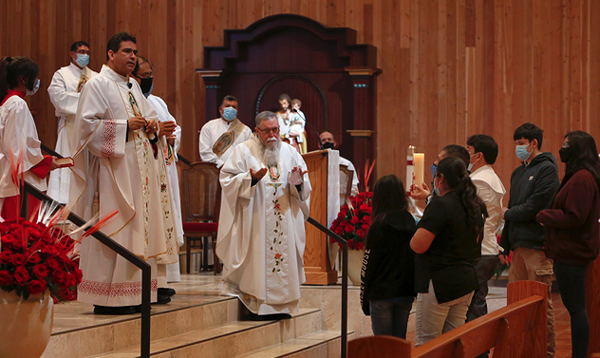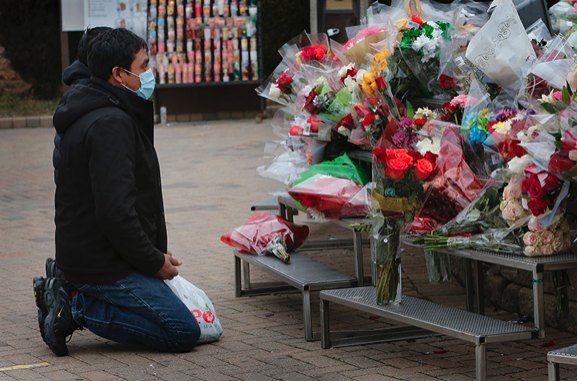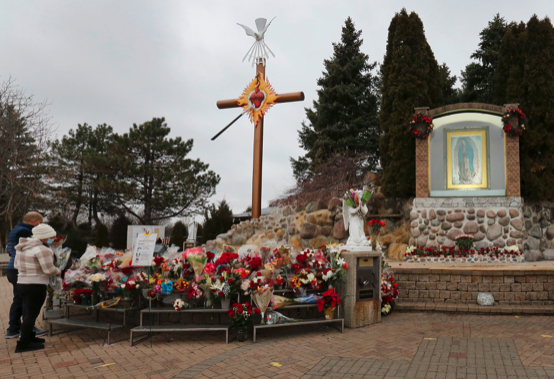By Very Rev. Esequiel Sanchez
Rector
Our Lady of Guadalupe Shrine

The Archdiocese of Chicago canceled all in-person liturgies, including the celebrations of the Feast of Our Lady of Guadalupe, which has thousands of pilgrims coming to celebrate it, and all Christmas festivities and activities. In short, over 270,000 congregants were unable to celebrate 2020 celebrations due to the COVID pandemic.
Fortunately, The Shrine of Our Lady of Guadalupe had been livestreaming Sunday services for years. We had recently upgraded our systems and built a new Chapel dedicated to St. Joseph that seats 1200 parishioners. The chapel was completed and consecrated by Cardinal Blase Cupich in 2019.
When the pandemic hit, the Shrine was ready to move all services and programs online, including religious education instruction as well as Sunday and holiday Masses. Since capacity was also deemed limited at funerals, weddings, and baptisms, we were also able to offer to the community livestreamed services that greatly supported families in helping them feel united whether they were here locally or in their home country.

Incidentally, the number of funerals greatly increased during COVID. I would say that the number of funerals celebrated at the Shrine has grown by over 50% over the past year.
We have not had immunization clinics come to the Shrine, but I have publicly encouraged people to get immunized and assuaged any concerns they may have about the immunizations available from a Catholic point of view.
However, Hispanic Catholics tend to be highly suspicious of government mandates when it comes to their heath. They also have a significant moral objection to the vaccines created by aborted fetal material. Lastly, they are unsure of the long-term side effects of these drugs on their health. The fact that there are too many narratives both for and against getting immunized has only added to the confusion and insecurity.

The greatest impact of the Pandemic on the Hispanic community has been the issue of mental health. Immigrants, especially undocumented ones, suffer from not being able to visit or bury their loved ones back in their home country. This is a major emotional trauma.
Also, the education of their children has been seriously hampered. Online classes have been a major challenge to the community since both parents often don’t speak English or have a lower educational acumen than their children. Students feel lost and alone in this process of education.